Wearing big black headphones and sitting on a blue floral bedspread, North Korean defector Lee Yumi was video chatting with yet another stranger online, dark rings shading the pale skin under her eyes.
For five years, Lee – whose name has been changed for her safety – says she had been imprisoned with a handful of other girls in a tiny apartment in northeast China, after the broker she trusted to plan her escape from North Korea sold her to a cybersex operator. Her captor allowed her to leave the apartment once every six months. Attempts to escape had failed.
Lee’s story is shared by thousands of North Korean girls and women, some as young as 9 years old, who are being abducted or trafficked to work in China’s multimillion-dollar sex trade, according to a report by the London-based non-profit organization Korea Future Initiative (KFI).
North Korean women are often enslaved in brothels, sold into repressive marriages or made to perform graphic acts in front of webcams in satellite towns near cities close to China’s border with North Korea, the KFI found. If caught by the Chinese authorities, they face repatriation to North Korea where defectors are often tortured. CNN was not able to independently verify claims made in the report.
Lee, however, had just found a lifeline. The stranger the 28-year-old was talking to online was not a cybersex customer. He was a South Korean pastor – and he had promised to save her.
“Don’t worry, we are going to rescue you,” he said.
Lee smiled weakly and started to tear up, before typing back: “Thank you. I’m afraid.”

Escape from North Korea
There are no official statistics showing exactly how many North Koreans have fled their country, which is home to about 25 million people. South Korea says it has welcomed more than 32,000 defectors since 1998. Last year alone, the country received 1,137 defectors – and 85% of them were women.
“It is much easier for them to flee, because they are not usually enrolled in formal employment at a factory or a state firm where any absence would be immediately reported,” said Yeo Sang Yoon, from the Database Center for North Korean Human Rights, an NGO in Seoul. “They are in charge of the household and can thus slip away unnoticed.”
Lee grew up in a family of low-level party cadres in North Korea.
“We had enough food,” she said. “We even had rice and wheat stored in the garage.” But Lee felt her parents were too strict. “I had to be home before sundown, and they didn’t allow me to study medicine.”
One day, after getting into a fight with them, she decided to cross the border into China. Lee said she found a broker to facilitate the dangerous move who promised her a job in a restaurant.
That promise turned out to be a lie.
Usually, women like Lee pay brokers $500 to $1,000 to organize their safe passage to China, according to NGOs and defector accounts.
To reach China, many defectors cross the Tumen River that separates North Korea from China on foot at night, sometimes in freezing weather with the water coming up to their shoulders.
After Kim Jong Un came to power in 2011, border security was tightened to avoid the bad publicity associated with defections and prevent information about North Korea trickling into the country, according to Tim Peters, an American pastor who co-founded an NGO called Helping Hands that helps defectors flee. An electric fence was added, as well as cameras at the border.
“On the Chinese side, patrols were also increased because Beijing is afraid an influx of refugees could destabilize its own regime,” he added.
North Korea is visible from Yanji in China.
Two huge portraits of Kim Il Sung and Kim Jong Il hang at the entrance of a bridge linking the two countries.
Once on Chinese soil, defectors must reach the city of Tumen that sits right up against the icy river, in a lunar landscape of barren hills. North Korea is visible from the town – farmers in a village there can be seen plowing their fields with antique machinery.
Lee crossed the Tumen River in a group of eight girls.
When she arrived in China, Lee said she was taken to a apartment on the fourth floor of a pale yellow building in Yanji, a city in Jilin province about 50 kilometers from Tumen, where most signs are written in Korean and Chinese and scores of restaurants sell bibimbap and kimchi, due to the large population of ethnic Koreans.
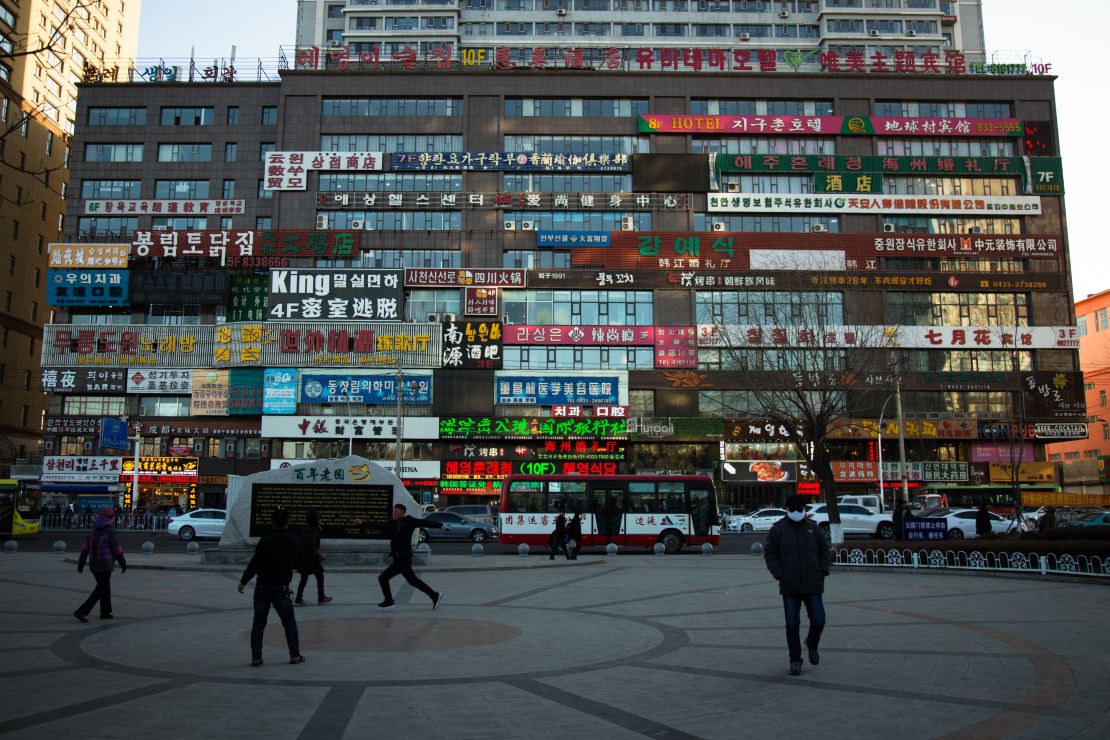
At the apartment, she realized there was no restaurant job.
Instead, Lee said her broker had sold her for 30,000 yuan (about $4,500) to the operator of a cybersex chatroom.
“When I found out, I felt so humiliated,” she whispered. “I started crying and asked to leave, but the boss said he had paid a lot of money for me and I now had a debt towards him.”
Korean NGOs estimate that 70% to 80% of North Korean women who make it to China are trafficked, for between 6,000 and 30,000 yuan ($890 to $4,500), depending on their age and beauty.
Some are sold as brides to Chinese farmers; more recently, girls have increasingly been trafficked into the cybersex industry, according to the KFI.
Rising wages in northern China cities have led to a greater demand for prostitutes among the male population, according to the KFI report. In southern China, trafficked women from Vietnam, Laos and Cambodia has typically met that demand. But in northeastern provinces, men have turned to North Korean refugees.
A spokesperson for the Chinese government said in a statement to CNN: “I want to stress that the Chinese government pays high attention to foreign citizens’ legitimate rights according to law, also combat activities of human trafficking women and child.”
Michael Glendinning, director of the KFI, said the Chinese government was “not doing enough to protect North Korean women and girls in its territory at all.”
“China must work to crack down on the networks and individuals – including Chinese public officials – responsible for the trafficking of North Korean women and girls, he said. “But it must do so in a way that ensures that these women and girls are not repatriated to North Korea where they would face torture, imprisonment, and possibly extrajudicial killing.”
Two other North Korean women already lived in the two-bedroom apartment Lee was delivered to. One was 27 years old, had her own bedroom and seemed close to the chatroom boss. “I think she was supposed to spy on us,” said Lee.
The other girl was Kwang Ha-Yoon, whose name has been changed to protect her identity for her safety. Kwang was 19 years old and had been locked up for two years when Lee arrived.
“My parents split up when I was very young and I grew up with my mother and grandparents,” she said. “We never had enough to eat.” Kwang left North Korea to earn money to send to her family. “Both my mother and my grandmother had cancer and needed treatment,” she said.
But all the money Kwang earned in China went to her captor.
Lee and Kwang had to share a room.
“The only furniture was two beds, two tables and two computers,” recalled Kwang. “Every morning, I would get up around 11 a.m., have breakfast and then start working until dawn the next day.” Sometimes, she would only get four hours of sleep. If they complained, they would get beaten, although both women said they did not suffer sexual abuse by their captor.
Work involved logging onto an online chat platform on which South Korean men can pay to watch girls perform sexual acts.
Within minutes of logging on to the site, users are barraged by women on the platform sending text messages asking for a video chat in a private room.
They all claim to be from a major city in South Korea. The minimum price to chat on the site is 150 won (13 cents), but girls can set the entry price for a room, with popular accounts tending to have a more expensive entry fee. Tips start at a minimum of 300 won (25 cents), but can go far higher as customers try to persuade the girls to fulfill their requests. Lee and Kwang were tasked by their captors with keeping the men online for as long as possible. In South Korea, where prostitution is illegal, these services have become increasingly popular in recent years.
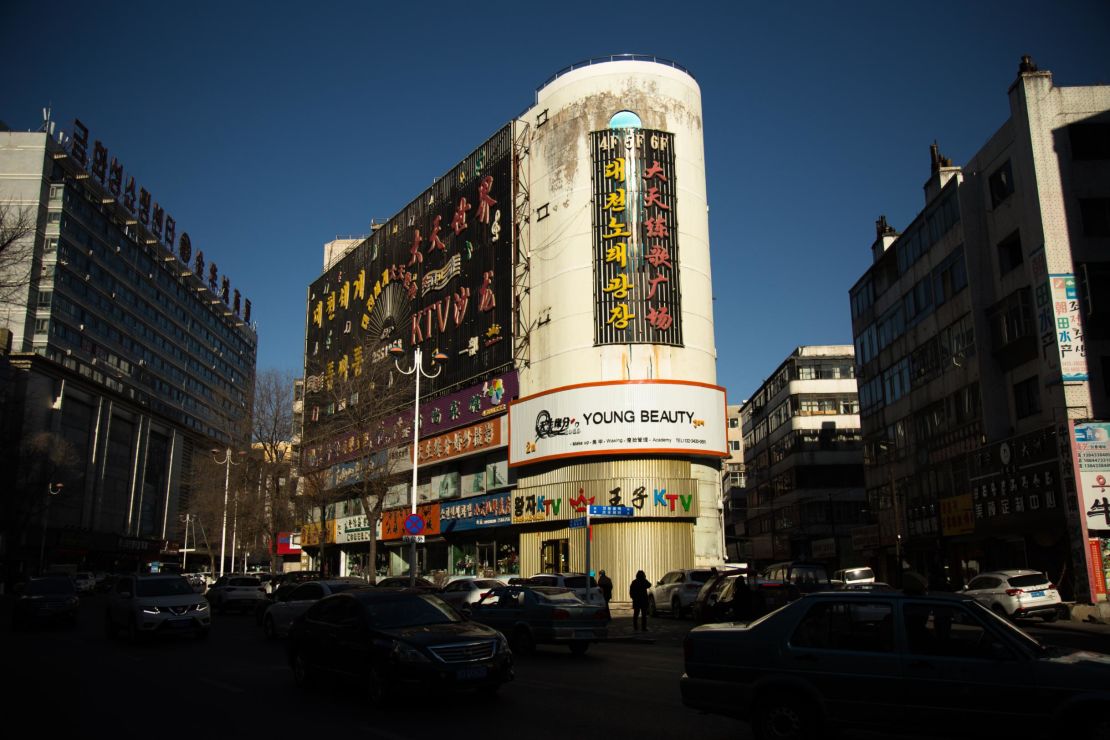
CNN reached out to the platform to ask what steps it takes to protect women like Lee and Kwang on its site, but the company did not respond.
“Some of the men just wanted to talk, but most wanted more,” said Lee, with a shudder of disgust. “They would ask me to take suggestive poses or to undress and touch myself. I had to do everything they asked.”
“I felt like dying 1,000 times, but I couldn’t even kill myself as the boss was always watching us,” she said.
Her captor was a man of South Korean descent who slept in the living room to keep a close eye on the women.
“The front door was always locked from the outside and there was no handle on the inside,” said Kwang. “Every six months, he would take us out to the park.”
On this small patch of green next to their apartment, retirees would meet to dance to music each afternoon.
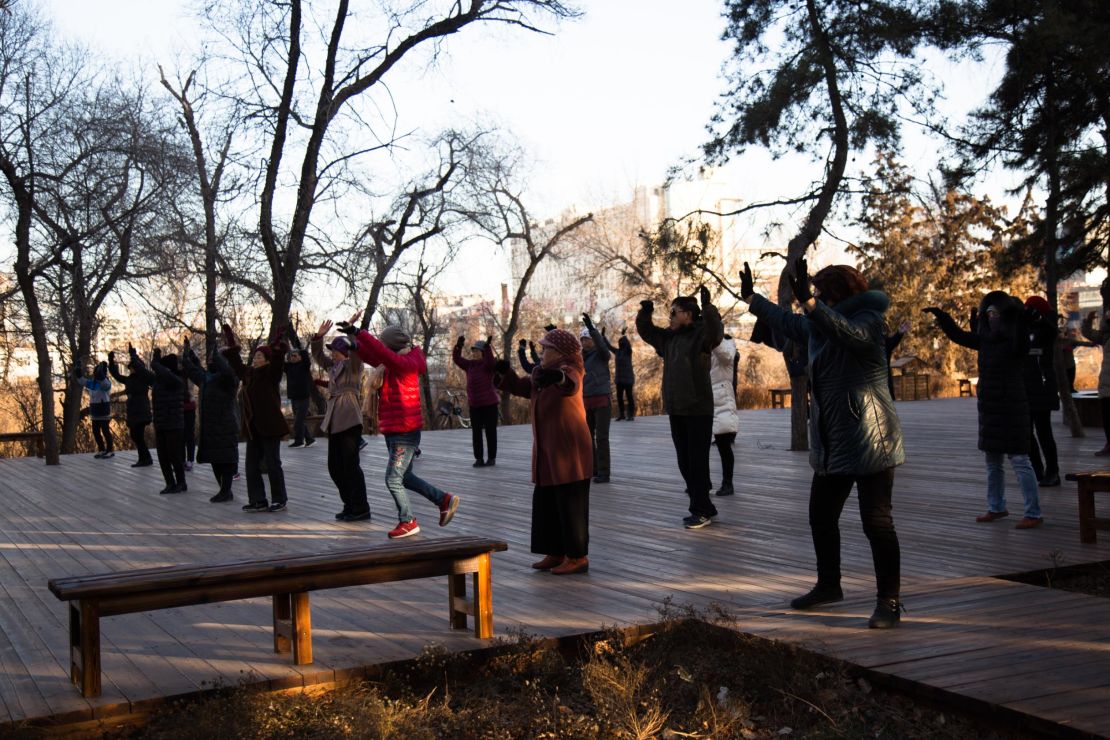
“During those outings, he would always stay right next to us, so we never got to talk to anyone,” said Lee. In 2015, Lee tried to escape by climbing out of a window and down a metal drain, but she fell and hurt her back and leg. She still limps slightly.
When their captor wanted something from the girls, he would try to sweet talk them, promising a cut of their earnings or to let them go free to work in South Korea one day.
But when Kwang asked for a piece of the 60 million won (around $51,000) she estimated she had made for him, he got angry.
“He started kicking, slapping and cursing me,” she said.
During the seven years Kwang spent locked up in his apartment, she said he never gave her a cent.
A ray of light
It was during the summer of 2018 that Lee finally saw her chance to escape.
“One of my customers realized I was North Korean and was being held captive,” said Lee. While most men probably knew the girls weren’t South Korean, because North Koreans have different accents and dialects to people in the south, they chose to look the other way.
This man was different.
“He bought a laptop and let me take control of the screen remotely, so I could send messages without my boss noticing,” Lee said.
The man also gave her the phone number of a South Korean pastor named Chun Ki-Won.
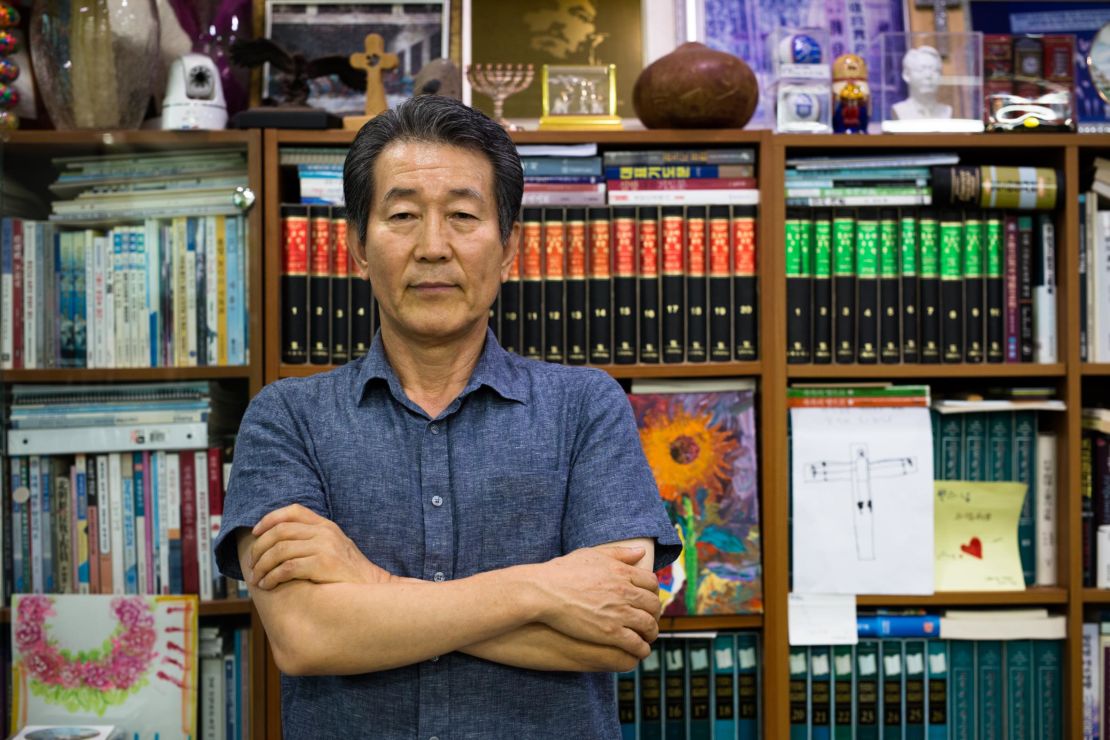
Chun, a mild-mannered man with high cheekbones and wavy gray hair, is one of a band of Korean pastors who specialize in helping North Korean women escape from China. Chun said his Christian aid organization, Durihana, has helped over 1,000 defectors reach Seoul since 1999. Korean media has nicknamed him the Asian Schindler, after the German industrialist and Nazi Party member who saved the lives of 1,200 Jews.
“In the past few years, dozens of missionaries linked to my organization have been deported from China,” he said from his Seoul office that overflowed with plants, books and religious figurines. “There are only a few left, and they have to stay on the move constantly to avoid being arrested.”
China is a close ally of Pyongyang and doesn’t consider North Korean defectors refugees, instead seeing them as illegal economic migrants. “When it catches them, it sends them back (to North Korea), where they face torture, internment in a labor camp and sometimes death,” said Lee Eunkoo, the co-founder of Teach North Korean Refugees, an NGO that helps defectors learn English.
In September 2018, Lee contacted Pastor Chun on KakaoTalk, a Korean messaging service.
“Hi, I want to go to South Korea. Can you help me?” read the first message she sent.
Over the following weeks, Lee explained to Chun how she had ended up in a cybersex chatroom. He asked her about the apartment’s layout and her boss’ comings and goings.
By mid-October a plan had been hatched: Chun would send a team to Yanji to extract Lee and Kwang.
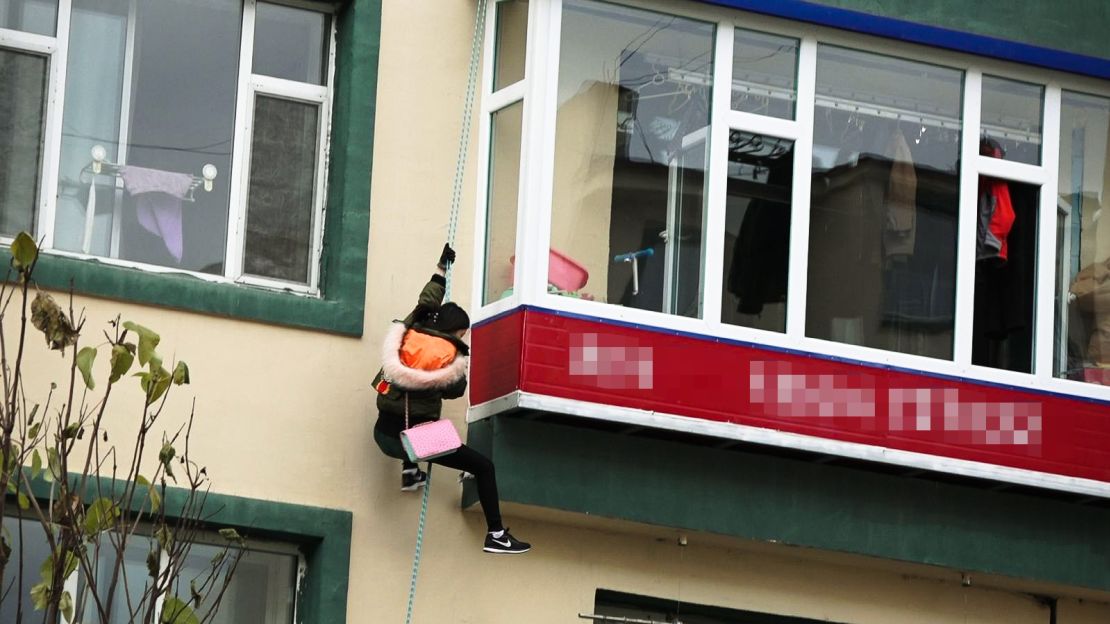
On October 26, while Yumi’s boss was away for the day, Durihana’s members arrived at the foot of the building. The two girls knotted their bedsheets together and dropped them out of their window. The extraction team then tied a rope to the sheets, which the girls pulled up and used to lower themselves safely to the ground.
They were only able to take a small backpack with a couple of essentials – a pack of wet wipes and a comb. They jumped into a car and sped away.
The whole operation took minutes.
Journey to the south
Korean pastors have set up a network of routes and safe houses in China inspired by the Underground Railroad, the secret passages enslaved African-Americans used to escape to free states from the late 1700s until the US Civil War.
“Each individual cell knows nothing about the other ones, to avoid compromising the whole operation if one of them gets caught,” said Tim Peters, the American pastor living in Seoul who is helping North Koreans flee.
Before 1998, defectors would simply knock on the door of the South Korean consulate general in Shenyang, the capital of neighboring Liaoning province, around 790 kilometers (490 miles) from the border with North Korea.
But during the Sunshine Policy era (1998 to 2008), which saw a rapprochement between Seoul and Pyongyang, several refugees were deported to North Korea from the Shenyang consulate, according to the book “Escape from North Korea: The Untold Story of Asia’s Underground Railroad” by Melanie Kirkpatrick. Defectors then started crossing the Gobi desert into Mongolia, aiming to reach the South Korean embassy in the capital. But that route closed in 2010, when Ulaanbaatar reinstated strong diplomatic links with North Korea.
The only option left was to go south through China, hoping to reach a country that wouldn’t send North Korean refugees home.
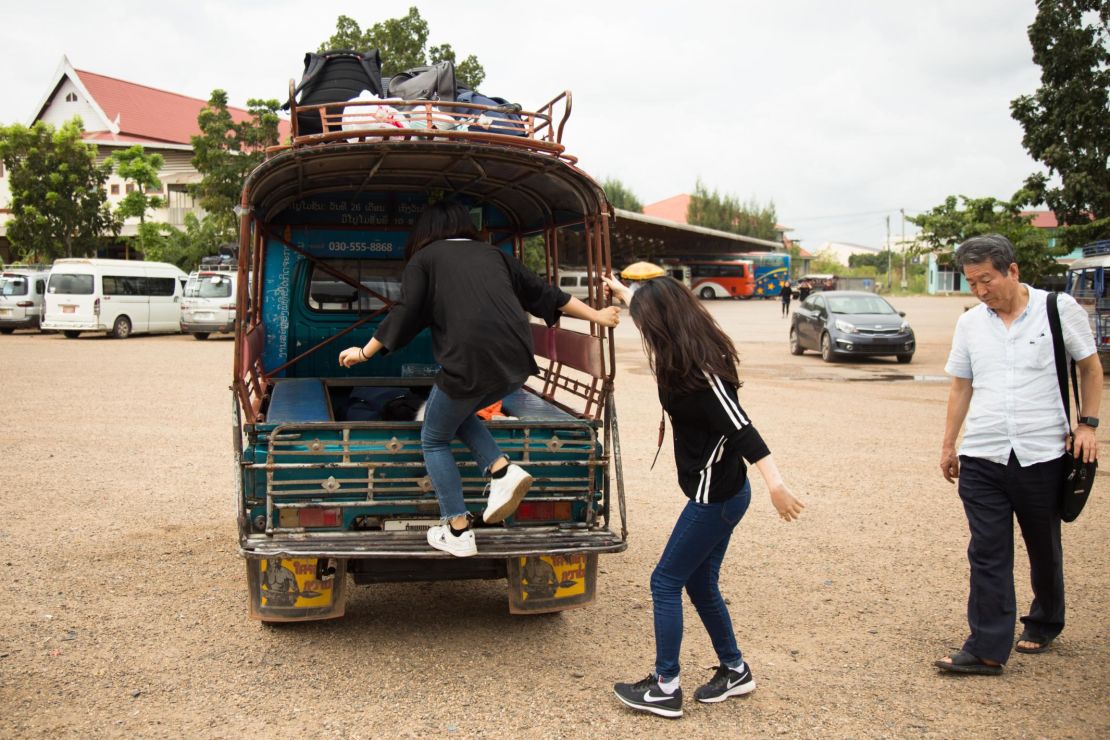
After escaping Yanji, Lee and Kwang said they went across China on buses and trains using fake Korean passports. Their last stop was Kunming, in China’s deep southwest. From there, most defectors cross the border illegally into Laos or Myanmar and either head for the South Korean Embassy in the capital cities of those countries, or continue to Bangkok, in Thailand. CNN has not revealed which country Lee and Kwang traveled to for security reasons.
Lee and Kwang met with a Chinese man who took them across the mountains into a neighboring country.
“We walked for five hours through the jungle, before reaching a road where a car was waiting for us,” said Kwang. Chun later met them in the middle of the night on the side of a road. “I burst into tears as soon as I saw him,” said Kwang, who is now 24 years old. “For the first time in a very long time, I felt safe.”
After two more days of traveling by car and bus, they reached the capital city. “We were stopped several times by the police for routine checks, I was terrified,” said Kwang.
In total, they said their journey from Kunming took 50 hours.
As they rode towards the embassy in a tuk tuk, Lee stared giddily at the urban landscape unfolding before her eyes. “I’m so happy!” she said, as the embassy approached. Kwang was more nervous. “I know I should feel joy, but I just feel empty,” she said. “I don’t know what to expect, and I am afraid of the interrogations at the embassy.”
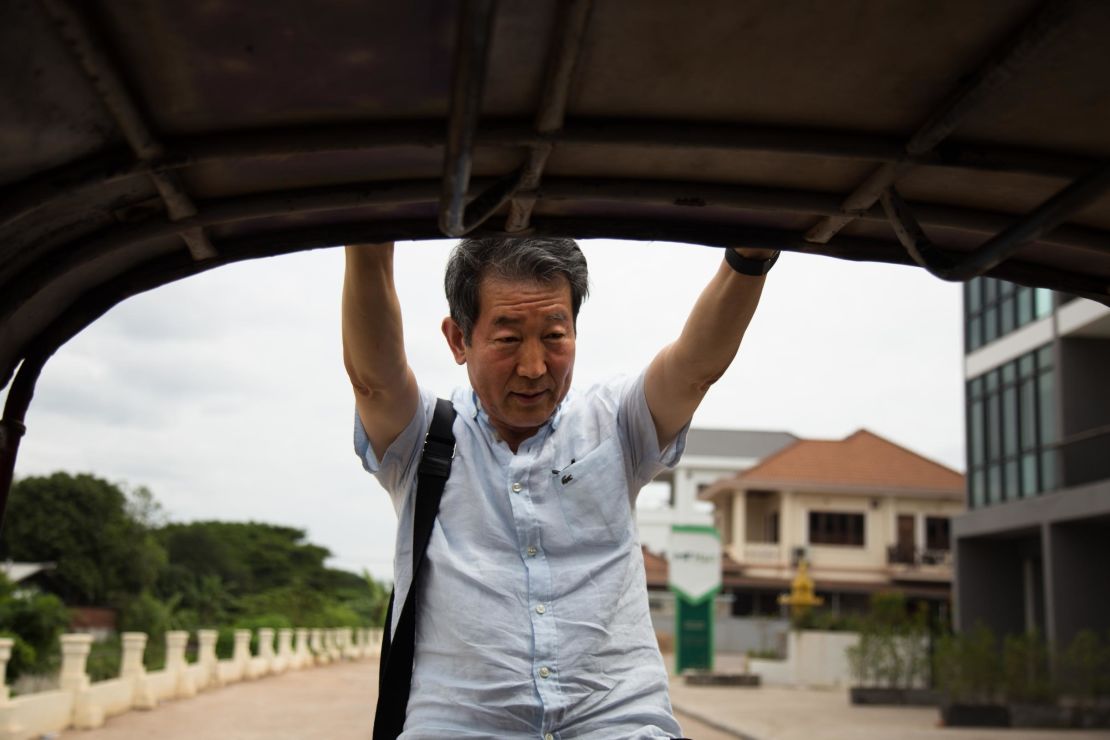
At 5.30 p.m., the two defectors and Chun walked up to the black and golden gate of Seoul’s diplomatic representation. Before they had a chance to ring the bell, they said a man in a black shirt opened the door and ushered them inside with a smile.
A few minutes later, Chun walked out – alone.
The embassy, which receives about 10 defectors a month, according to officials, kept the women for about 10 days for questioning. Those who satisfy the questioning process will fly to freedom in South Korea.
Upon arrival in South Korea, defectors spend three months at Hanawon, a processing center where they learn how to navigate staples of modern life such as taking the subway, getting cash from an ATM or buying groceries in a supermarket. They are then provided with a South Korean passport, a subsidized apartment and the right to enroll at a university for free.
Before entering the South Korean Embassy, Lee had given her new life a lot of thought.
“I want to study English and Chinese and maybe become a teacher,” she said.
Kwang, who had left school at 12, hoped to graduate.
“I never really had the luxury of wondering what to do with my life,” she said.
CNN’s Jake Kwon also contributed to this report.



















